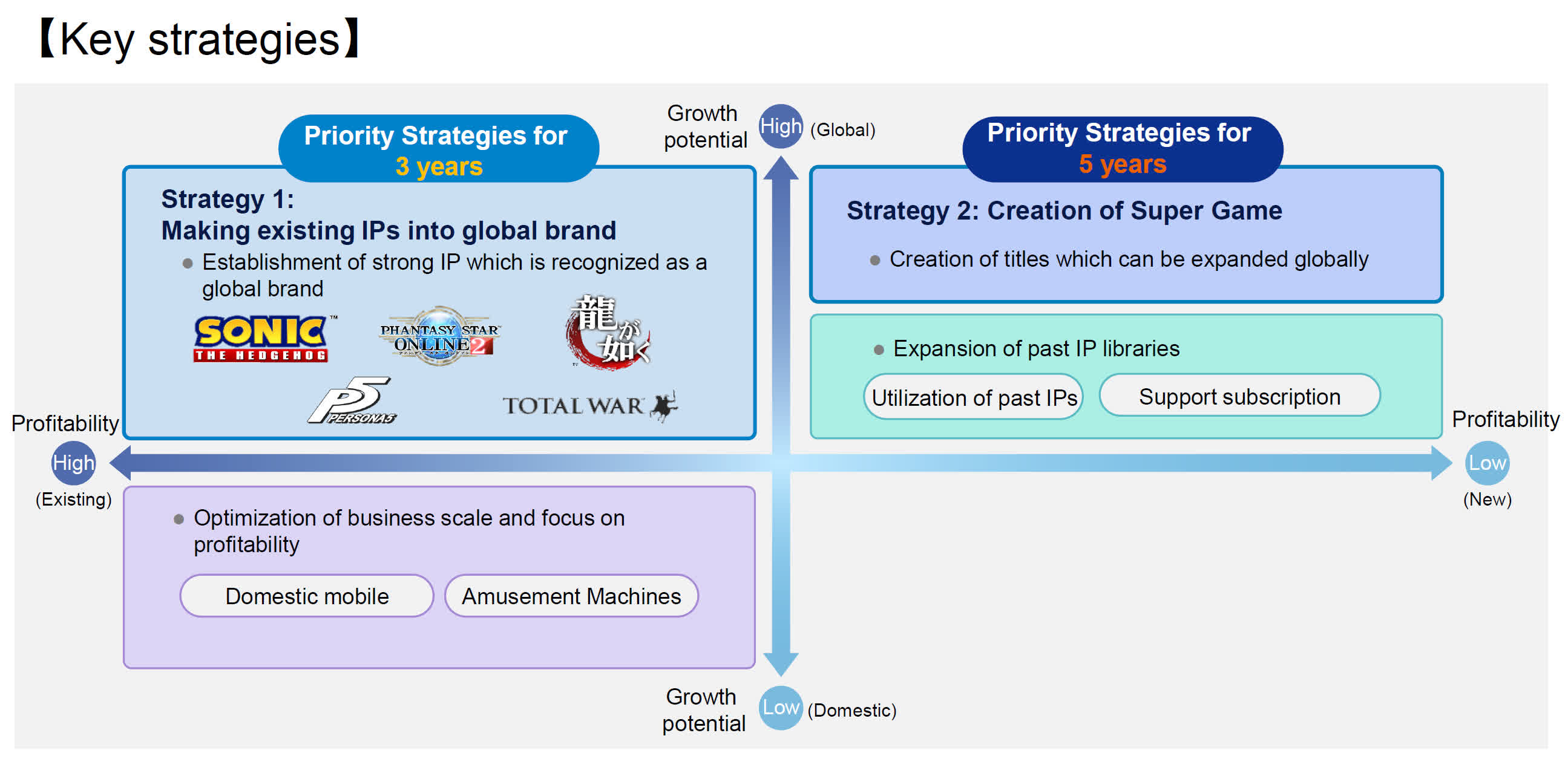Sega and Microsoft this week announced a new partnership where Sega will make games on Microsoft's Azure cloud platform. It seems to be the next step in Sega's previously stated plan for a "Super Game" initiative. The announcement came on Sega's press channel on Monday. More specifically, Sega says it's utilizing Microsoft's Azure platform to build large-scale and global games in a "next-generation development environment."
"Super Game" is Sega's initiative to make innovative games focused on "global," "online," "community," and "IP utilization." The last time Sega referred to "Super Game" was in its results presentation last May, for the fiscal year ending March 2021. The slide indicated "Super Game" as a five-year plan to make games that can be "expanded globally."

That slide and Sega's recent announcement don't say much about "Super Game," but it does sound like Sega wants to make bigger games than ever before in terms of technology and range of players. If that's the case, it thinks it can use cloud technology to do so. Sega specifically mentions cloud services and 5G.
Perhaps Sega's planned games could run on the cloud, or it could simply be intending to use Azure to help the development of bigger games. Azure's game development page already counts companies like Mojang, Pearl Abyss, Wizards of the Coast, Rare, 343 Industries, and Tencent and its subsidiaries.
Although Sega is traditionally known as a maker of Japanese arcade and console games, the company has cooperated with Microsoft in gaming several times, going back as far as the 1990s. Sega has been porting its games to Windows since the Windows 95 days---back when it was still making its gaming consoles (not unlike Sony today).
Today it is known as a prominent publisher of PC strategy and simulation games. The Dreamcast, Sega's last console, runs a customized version of Microsoft's Windows CE operating system. Legend even has it that Sega wanted Microsoft's first Xbox console to be compatible with Dreamcast games (if nothing else, the Xbox controller inherited Sega's button layout).
